A Great Thriller by Daniel Calvisi
I’d like to tell you what I love to see in a great Thriller screenplay.
Read more
I’d like to tell you what I love to see in a great Thriller screenplay.
Read more
It ain’t easy, but if you strive for excellence and you put in the time, you just may write something that’s not just good but great.
I don’t see any other goal. You’re here to create a great movie that will stand the test of time. Seems obvious to me.
But…we all know those newbies who are only in it to write one screenplay and sell it for the “big money.” Well, they can keep dreaming because this is a very unique, detailed, demanding, difficult and rewarding craft and it takes more than just one script to get it down.
It takes a strong commitment to being the best. Writing the best Thriller to blow away all Thrillers. The most hilarious, relevant Comedy. The most stirring Drama. The most kleenex-wetting Romance.
And here’s where it begins. Right here, in this article.
Yes, it’s true, let there be no more speculation and no more confusion. Why?
I’ve got a list.
And everybody loves lists. (Don’t they?) Read more
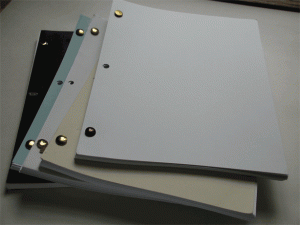
Are you sick of wading through the hundreds of websites that offer “script services” or “movie script coaching?”
Think your screenplay deserves the best script doctoring and coaching you can find on the internet?
Did you hire a joker that took your money and gave you template notes or sub-standard coverage?
Are you wondering why the flashy website for a script doctor or screenplay service doesn’t have a bio page or list any credentials?
Did you pay good money to enter your script in yet another contest only to place in the “Top 25%” (whatever that means) and find out that the volunteer judges chose a boring screenplay that will never get made in Hollywood as the winner ?
Are your friends and writing group members not providing the level of detail and story solutions to truly help you take your work to the next level?
I should know, as I’ve been working professionally with screenplays and writers for almost fifteen years. I’ve worked as a Senior Story Analyst for major movie studios and production companies and I’ve seen the quality of writing at this level.
I was paid to give a Pass, Consider or Recommend to scripts and books being submitted by agents, managers and major stars.
In this article, I break down the basics of script services and offer some little-known tips to help you find the best script doctor for you. I will discuss…
One can’t think “action movie” without thinking Die Hard. I remember watching the epic commercials for the film during the 1988 Academy Awards, wherein they promised the movie would be the first in decades to be presented in full 70mm wide-screen, and feature 6-track Dolby Surround Sound (yes, SIX tracks!). But that wasn’t all. What really mattered was the tagline: “It will blow you through the back wall of the theater!” Read more
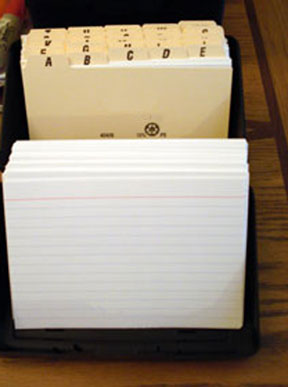
Beware paper cuts. And fun!
Anyone else use the old-fashioned, classic index cards to compile your scene list?
Sure, your screenwriting software has a super-cool 3D index card “mode” and you can drag-and-drop those shiny digital cards all you want and the edges will never fray and the ink will never smudge because there’s no edges and no ink.
But it’s just not the same. Read more
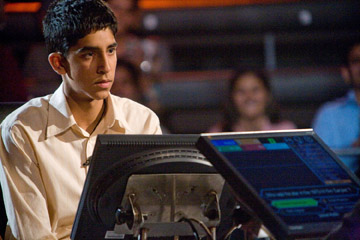
You know who your story is about and what it’s about and why you’re telling the story…but HOW are you going to tell it?
Think about the general way that you’re going to tell the story before you start to lay out the scene list. What’s your way into this story?
E.T. was crafted to be told from the perspective of a young boy, Elliot. We pretty much only see what he sees, know what he knows. The film even employs low angles to give the audience the perspective of a child.
The Usual Suspects is literally told to us by Kevin Spacey’s character, who spins a long-winded tale meant to answer the question “Who is Keyser Soze?” The answer is not revealed until the climax when we learn that he is Keyser Soze.
Citizen Kane uses the framing device of a reporter’s investigation, thus motivating a trip through the life of Charles Foster Kane, all in answer to the question “What is Rosebud?”
Slumdog Millionaire uses the questions in the quiz show as catalysts for flashbacks that show us Jamal’s journey from the slums to his lower-class job as a Chai server to his chance to win a million dollars on TV — these scenes show us how he gathered the information to answer the question at hand, a deft use of Cause & Effect. The quiz show becomes the spine of the story, providing the foundation for Jamal’s pursuit of his external and internal goals, which are, put simply, the money and the girl. It’s interesting to note that these two goals represent Jamal’s two worlds: the upper class world of money and the lower class world of danger and desperation.
These examples were the screenwriters’ chosen perspectives and central engines for the story. They could have chosen 100 other devices with which to tell these particular stories, but they chose these narrative devices, probably because they best exemplified the key elements in their Basic Story Map, like Goals, Theme and Arc.

Working, professional Reader Carson Reeves runs a site named “Script Shadow” — if you haven’t checked it out, you should do so now.
Script Shadow consistently publishes detailed reviews of spec scripts that have recently sold in Hollywood. Carson reads and reviews the Black List finalists (in which most of the top scoring scripts have been optioned, sold and/or put into production by the time of publication) and any spec that’s hot and garnered a six to seven figure sale or a greenlight. He also runs small contests (with the prize of a published review from him, not cash, which I like) and publishes articles about what goes into a great screenplay.
I’d like to highlight a particular post from May 2010, titled “Why Bad Scripts Sell and Why It Shouldn’t Matter To You,” which has a lot to say about bad scripts but what I love the most about it are the conclusions drawn about GOOD scripts. From the article…
So now you know Hollywood’s dirty little secret. Bad scripts do sell! But here’s the thing about all of the above examples: THEY DON’T APPLY TO YOU. You don’t have agents or managers or the luxury of pitching movies over lunch to people who can actually make them. The ONLY thing you have…is your screenplay. And that’s why YOUR screenplay DOES have to be great.
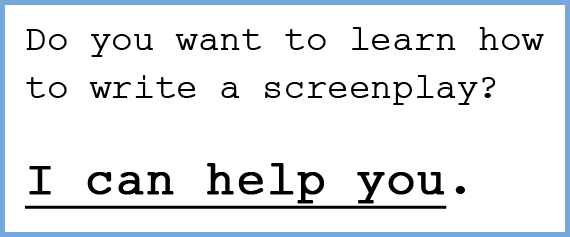
I can give you the TOOLS — the professional screenwriting how to — to write a great movie screenplay or television script. My method is called Story Maps Screenwriting and it is the most simple, clear and effective roadmap to take you from your initial concept all the way to a polished draft that you can submit to agents, managers and producers in the movie industry in Hollywood. Read more
Featuring examples from The Departed, Saving Private Ryan, Collateral, Munich, Lethal Weapon, As Good As It Gets, Forrest Gump, Casanova and The Chronicles of Narnia.
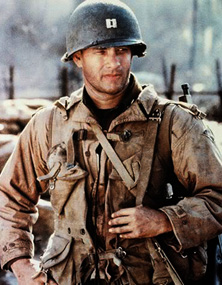
[note: some of the screenplay excerpts on this page have not been properly formatted for this blog, yet. I’m working on it. -Dan]
There are three main categories of skill needed to write a screenplay: Structure, Characters and Voice. Dialogue may win Oscars and get many an established pro hired on assignment, but I believe it’s a distant fourth when it comes to a spec screenplay submitted by a NEW writer.
You’ve probably heard about the dreaded studio Readers who read only the dialogue in a script. Well, that can happen, so I’d contend that it’s your job to make the reader WANT TO READ your description by seducing them with a compelling narrative voice that establishes TONE, PACING and EMOTION right off the bat, rather than just listing flat stage directions. You need to grab them, shake them, and hold them.
I worked for years as a professional Story Analyst, or “Reader” for major movie companies in New York City, reading and evaluating incoming screenplays and books for executives and producers who developed films like Chicago, Scream, The Game, The Faculty, Volcano, Beloved, Ulee’s Gold, and Chocolat. Their production slates ran the gamut of genres and so did the material that I was handed.
And I realized that the common wisdom about your Act One being “Setup”…is crap.

I can give you the TOOLS — the professional screenwriting how to — to write a great movie screenplay or television script. My method is called Story Maps Screenwriting and it is the most simple, clear and effective roadmap to take you from your initial concept all the way to a polished draft that you can submit to agents, managers and producers in the movie industry in Hollywood. Read more

I can give you the TOOLS — the professional screenwriting how to — to write a great movie screenplay or television script. My method is called Story Maps Screenwriting and it is the most simple, clear and effective roadmap to take you from your initial concept all the way to a polished draft that you can submit to agents, managers and producers in the movie industry in Hollywood. Read more
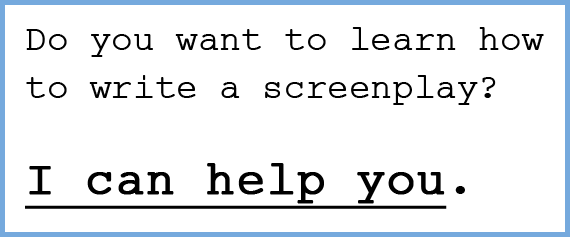
I can give you the TOOLS — the professional screenwriting how to — to write a great movie screenplay or television script. My method is called Story Maps Screenwriting and it is the most simple, clear and effective roadmap to take you from your initial concept all the way to a polished draft that you can submit to agents, managers and producers in the movie industry in Hollywood. Read more
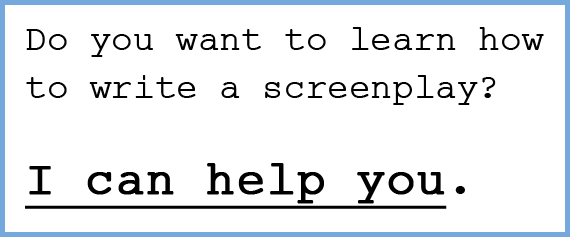
I can give you the TOOLS — the professional screenwriting how to — to write a great movie screenplay or television script. My method is called Story Maps Screenwriting and it is the most simple, clear and effective roadmap to take you from your initial concept all the way to a polished draft that you can submit to agents, managers and producers in the movie industry in Hollywood. Read more
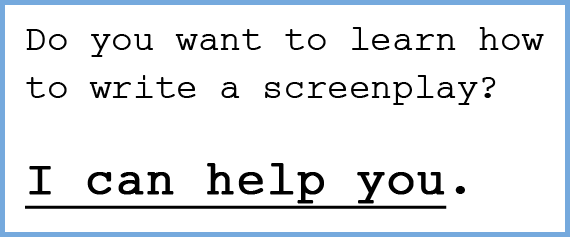
I can give you the TOOLS — the professional screenwriting how to — to write a great movie screenplay or television script. My method is called Story Maps Screenwriting and it is the most simple, clear and effective roadmap to take you from your initial concept all the way to a polished draft that you can submit to agents, managers and producers in the movie industry in Hollywood. Read more
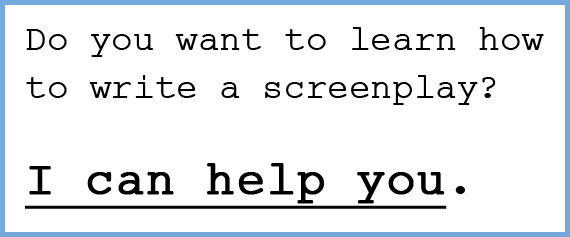
I can give you the TOOLS — the professional screenwriting how to — to write a great movie screenplay or television script. My method is called Story Maps Screenwriting and it is the most simple, clear and effective roadmap to take you from your initial concept all the way to a polished draft that you can submit to agents, managers and producers in the movie industry in Hollywood. Read more

I can give you the TOOLS — the professional screenwriting how to — to write a great movie screenplay or television script. My method is called Story Maps Screenwriting and it is the most simple, clear and effective roadmap to take you from your initial concept all the way to a polished draft that you can submit to agents, managers and producers in the movie industry in Hollywood. Read more
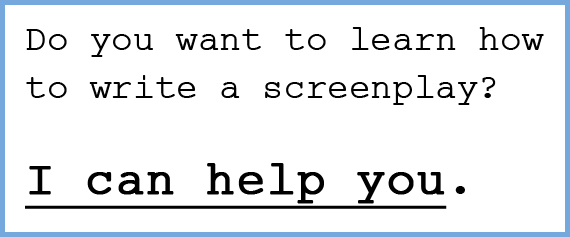
I can give you the TOOLS — the professional screenwriting how to — to write a great movie screenplay or television script. My method is called Story Maps Screenwriting and it is the most simple, clear and effective roadmap to take you from your initial concept all the way to a polished draft that you can submit to agents, managers and producers in the movie industry in Hollywood. Read more

I can give you the TOOLS — the professional screenwriting how to — to write a great movie screenplay or television script. My method is called Story Maps Screenwriting and it is the most simple, clear and effective roadmap to take you from your initial concept all the way to a polished draft that you can submit to agents, managers and producers in the movie industry in Hollywood. Read more
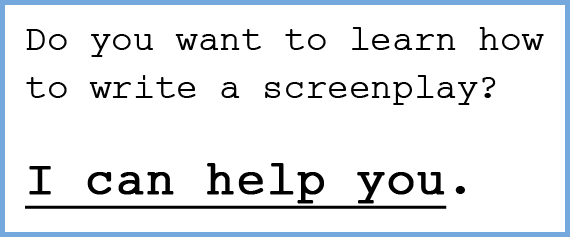
I can give you the TOOLS — the professional screenwriting how to — to write a great movie screenplay or television script. My method is called Story Maps Screenwriting and it is the most simple, clear and effective roadmap to take you from your initial concept all the way to a polished draft that you can submit to agents, managers and producers in the movie industry in Hollywood. Read more
